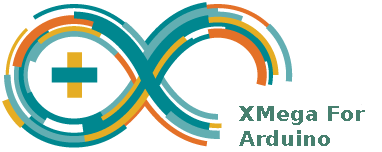-
Notifications
You must be signed in to change notification settings - Fork 17
Modifying the existing Arduino IDE
In order to implement the changes for the XMega for Arduino project, you will need to modify the Arduino IDE.
Typically this will be stored in '/usr/local/arduino' or '/usr/share/arduino' for operating systems like FreeBSD and Linux.
For Windows, it is typically stored in "C:\Program Files\Arduino" (or, if you hate 'spaces in file names' like me, you put it into "C:\Arduino").
The Arduino consists of some specific directories that contain information about the various board types, the 'core' code for these, and the 'variant' code that applies to specific 'variants'. The XMega for Arduino project adds the 'xmega' core and several variants for the various processors.
BASE: /usr/local/arduino or /usr/share/arduino
(On windows, typically C:\Program Files\Arduino)
-- hardware/arduino - contains 'boards.txt'
+----- cores
+----- arduino - built-in
+----- robot - built-in
+----- xmega - added (symlink or copy)
+----- variants
+----- arduino - built-in
+----- mega - built-in
etc.
+----- xmega64d4 - added (symlink or copy)
+----- xmega32e5 - added (symlink or copy)
+----- xmega128a1 - added (symlink or copy)
etc.
In the case of the 'avrdude.conf' file, it is typically in /usr/local/etc or /usr/etc depending on your OS. For Windows, it will be in the 'hardware/tools/avr/etc' directory (on non-windows OSs the 'hardware/tools/avr' directory is typically a symbolic link to /usr or /usr/local depending on where avrdude stores the avrdude.conf file).
- Download 'XMega For Arduino' source
- Apply 'patch.boards.txt' and the appropriate 'patch.avrdudeXXX.conf'
(Optionally you can manually modify these files) - Create symbolic links for (or copy, on windows) the 'cores' and 'variants' trees from 'XMega For Arduino'
- Apply patches for compilers and tools (including 'avrdude') as needed
NOTE: this may require some significant effort on your part - Re-start the Arduino IDE. New board types should now be visible (and fully supported)
© 2015-2019 (and later) by S.F.T. Inc.
You may freely use this documentation as you see fit, provided that appropriate credit is made, similar to a BSD or MIT license.
